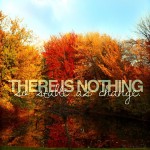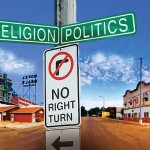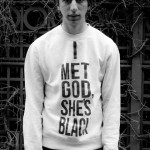Last Sunday, at the “Spirit Circle” group at my Unitarian Universalist congregation, we watched a clip of Bill Moyer’s interview of religious studies scholar Huston Smith. This clip was about mysticism and it prompted a discussion of mysticism, which led into a discussion about a different, but related phenomena: intuition.
Many people gave examples of moments when they felt inspired to do or say something when it felt like the source of the prompting was coming from somewhere other than their normal waking consciousness. The most common example was when people felt they were warned about a physical danger. The unstated assumption running through this discussion seemed to be that intuition can always be trusted.
One person did raise the question: “If intuition is a function of the mind, I don’t see why it can’t be fallible, just like any other function of the mind.” Another person, a man, raised the question of what happens when our intuition leads us to anti-social action. He suggested that we need to balance intuition with discernment. A woman in the group quickly responded: “That’s just patriarchal society expressing its fear of the feminine intuition!”
Whether you believe that the intuition can always be trusted says something, I think, about your understanding of the the nature of the source from which the intuition speaks. Whether you conceive of that source as God, the divine, the Universe, or the unconscious mind, if you believe that the intuition is always to be trusted, then you probably also believe that God, the Universe, etc. is benevolent.
I don’t. As I conceive them, none of these are benevolent, or at least not exclusively benevolent: neither God, the divine, the Universe, nor the unconscious mind. I consider this belief to be one of the core insights of a Jungian-inspired Neopaganism. There is a dark side to every light side, a yin to every yang.
Catherine Madsen writes in her essay, “If God is God She is not Nice”:
“However certain one may be that one is loved by some presence in the universe–and it is possible, at moments, to be very certain of that–that same presence will kill us all in tun, will visit our lovers with sudden and devastating illness, will freeze our crops, will age our friends, and will never for one moment stand between us and any person who wishes us harm.”
And what is true of the “external” divinity we call the Universe is equally true, I believe, of that “internal” divinity we call the Unconscious.
There is a tendency in Neopagan discourse to valorize the darkness. This is part and parcel of the spiritual feminist program to reclaim all those things associated with the feminine, and I applaud it. However, in the process it seems that two kinds of “darkness” get conflated.
First there is the darkness of the Unconscious. We describe the Unconscious as dark because it is unknown; it is concealed from the “light” of the conscious mind, from conscious awareness and from power of discernment. There is another kind of darkness, which Jung called the Shadow. The Shadow represents the repressed parts of ourselves. In Jung’s thought, every positive and constructive aspect of our personality has a shadow side which is negative and destructive. There is also the “bright shadow” those positive aspects of ourselves that we repress. But we’ll keep it simple for now.
To conflate the darkness of the Unconscious with the darkness of the Shadow is to confuse what is unknown with what is evil. It is to confuse an epistemological issue with a moral one. Not everything “dark” is good. I think it’s important that, in the process of reclaiming the dark, we do not lose our powers of discernment. I think we are right to fear the dark. That fear is not a reason to perpetuate repression — whether psychological (i.e., repression of parts of ourselves) or social (i.e., repression of women). But let us not be naive either. Our psyche has good reason from repressing some things. While our task, if we are to become fully human, may be to bring these parts of ourselves to light, we must do so in a way that does not destroy ourselves or those around us. And that is where the conscious power of discernment comes into play.
Returning to the issue of intuition, I think we must exercise the same discernment we use when we consider any human faculty. Intuition has its shadow side too — one I am personally familiar with. I was raised by someone who put great stock in her own intuition, and I saw how the belief that intuition can protect us can be transformed into an unfounded fear of dangers around every corner. Perversely, the belief in an extrasensory source of protection ended up perpetuating a looming sense of fear — for what a protector needs is something to protect from.
Jung wrote:
“The unconscious is neutral, rather like nature. If it is destructive on the one side, it is constructive on the other side. It is the source of all sorts of evils and also the matrix of all divine experience …”
For Jung, the unconscious can be destructive, as well as constructive. It may be the source of all psychic life and energy, but unchecked the waters of the unconscious could overwhelm the conscious mind in a flood of madness. He writes:
“The water simile expresses rather aptly the nature an importance of the unconscious. Where there is no water nothing lives; where there is too much of it everything drowns. It is the task of consciousness to select the right place where you are not too near and not too far from water; but water is indispensable.”
In our desire to reclaim the dark of the unconscious, I fear we sometimes forget the importance of the light of the discerning conscious mind — or worse, condemn it as a mere expression of patriarchy. I often wonder about this when I hear Neopagans extolling the virtues of the god Dionysus or Wotan. Jung (as well as ancient pagans) knew these deities to be representations of destructive aspects of the unconscious. Consider Jung’s “Essay on Wotan”, in which he explains the rise of National Socialism, not as a political or historical event, but as a spiritual one — one in which Germans were “possessed” (Egreiffenheit) by the storm God Wotan (whom he also equates with Dionysus). It is no coincidence that the Romantics inspired the fascists. And we Neopagans need to be aware that the roots of our movement lie in the Counter-Enlightenment as well as the Enlightenment. Later, I will post about that particular dark side of Paganism.
I guess my point is this: There is nowhere we can look to for an unmitigated source of goodness. Transferring our faith from God to the Goddess or to the universe or the Unconscious does not solve this problem. However we conceive of the source of inspiration, intuition, and/or mystical union, we must remember that it is not always to be trusted. The gods (if you use that metaphor) are as likely to eat you as bless you.











